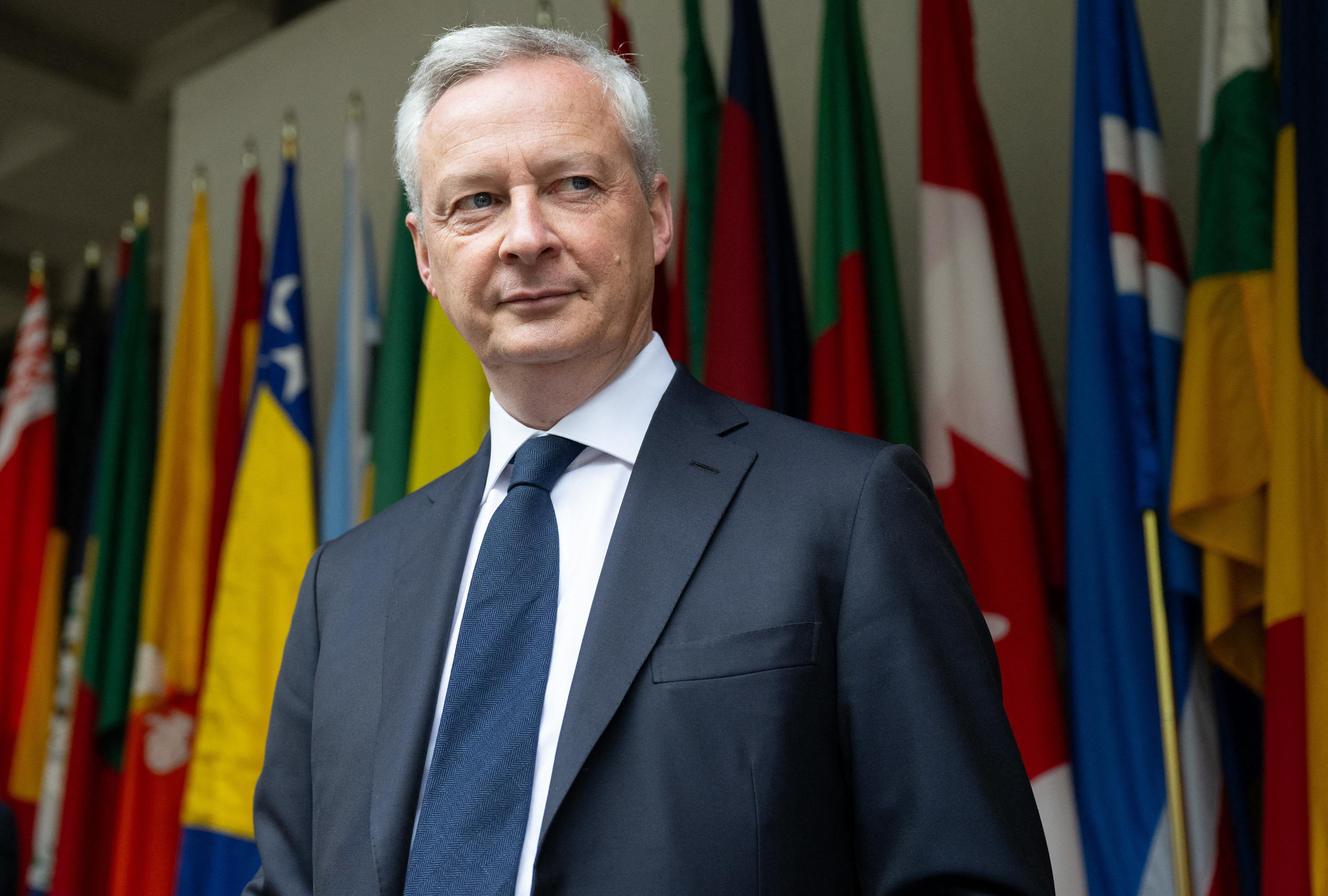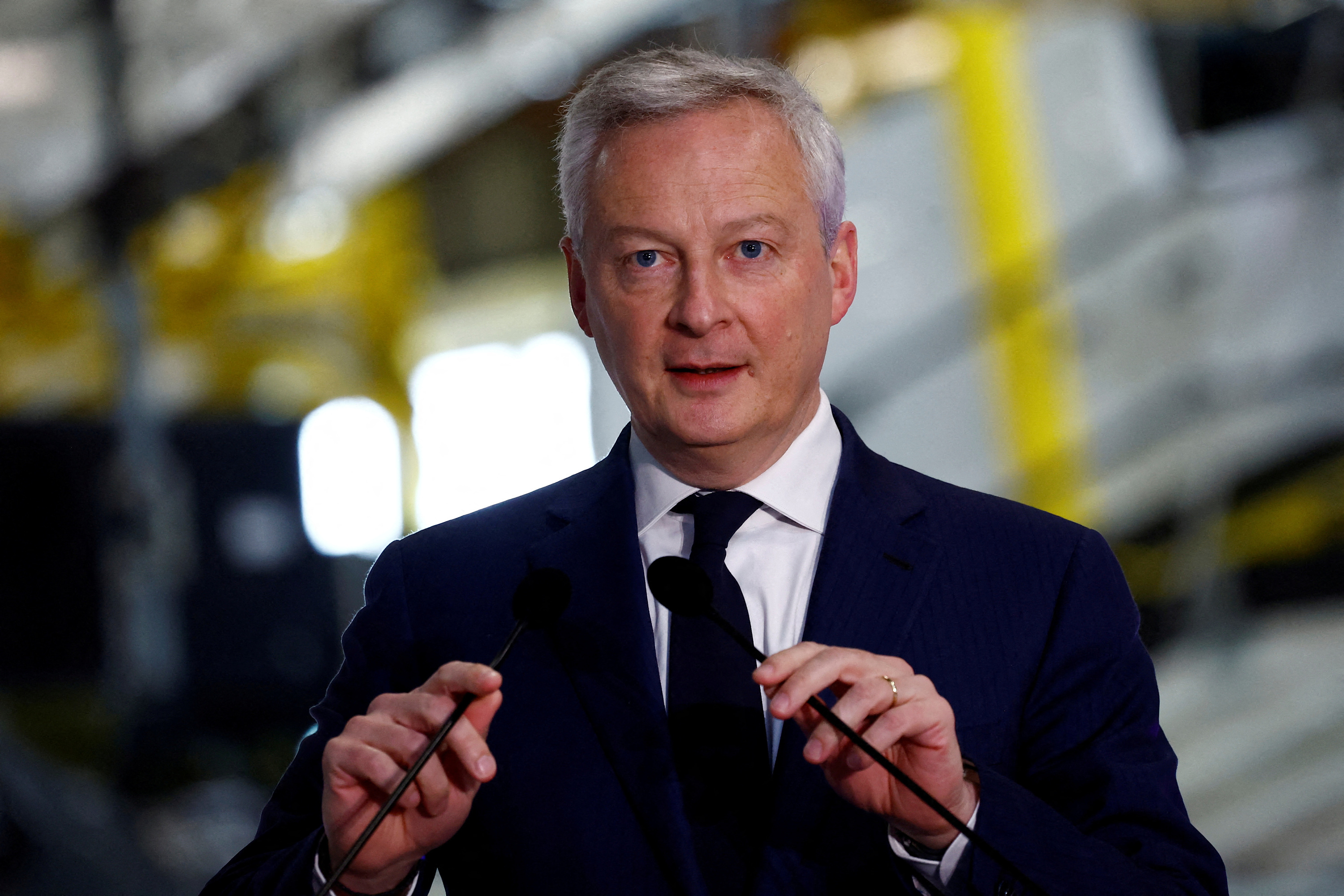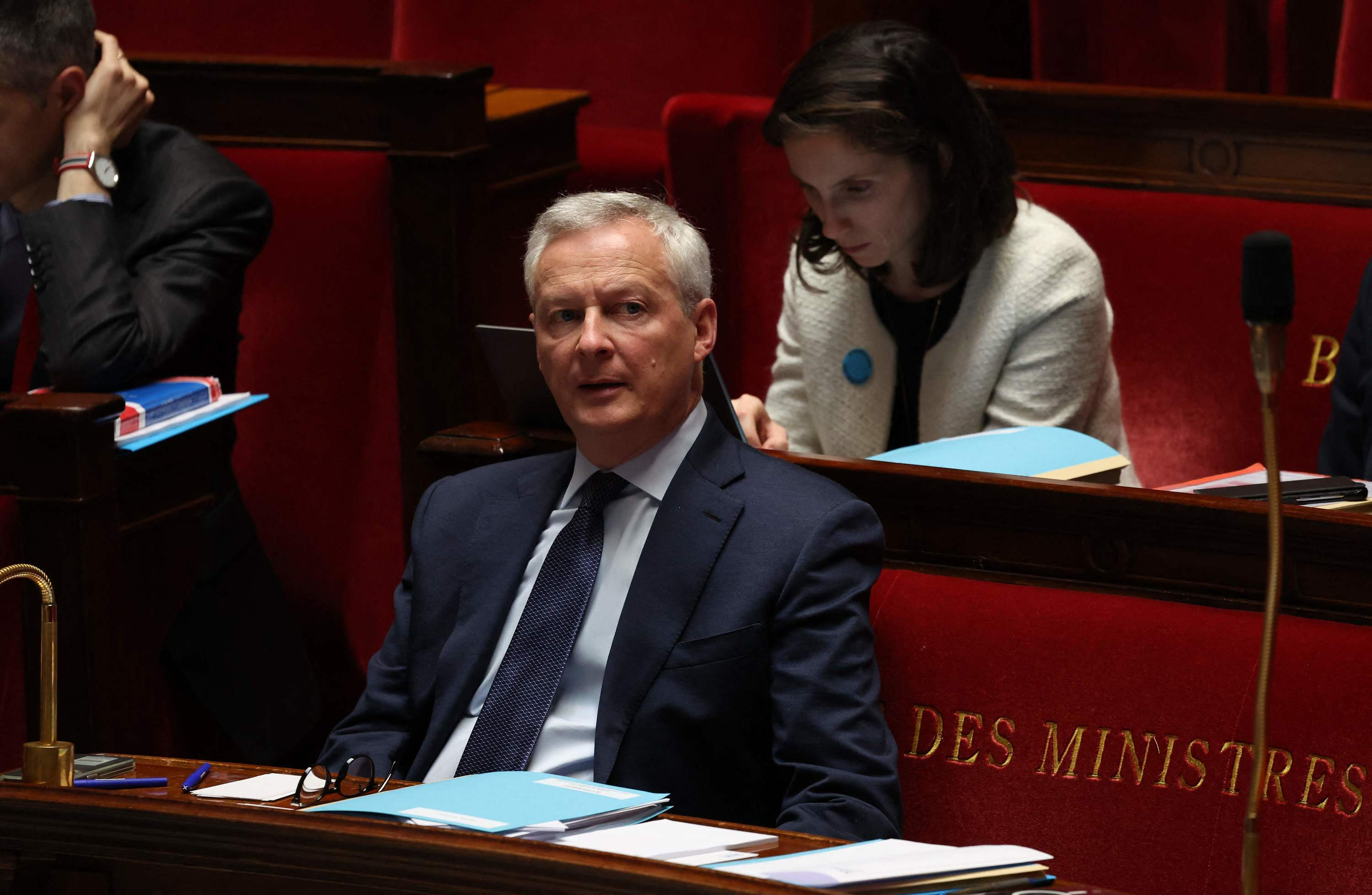He had met De Gaulle, Golda Meïr, Sadat and the Pope. Hunted wild boar with Brezhnev. Negotiated with Deng Xiaoping. Visited hundreds of countries. The man who was the architect of American diplomacy from the 1970s died this Thursday, November 30. At the twilight of a century of extraordinary existence, Henry Kissinger, his body diminished but his mind still alert, was still publicly painting the geopolitical fresco of the century to come.
In his last four interviews, given the year of his death to the German media WELT TV and Die Zeit, to the American newspaper The Economist and to the Bloomberg news agency, the former American secretary of state, who was also a professor, delivered his last lessons in international relations.
Also read “Intelligence failure, Israeli response, importation of the conflict into France”: the analysis of Pierre Brochand (ex-DGSE) on the Hamas attack
When he responded last October to the CEO of Axel Springer SE, Mathias Döpfner, in front of the WELT TV cameras, it had been two weeks since Hamas sent its terrorist brigades to sow death in Israel. Henry Kissinger saw it as a “fundamental attack on the international system”, which further shakes up the global order.
Hamas' “act of aggression” must be subject to “a certain sanction,” he declared, while warning of the danger of an escalation in the region. “The conflict in the Middle East risks intensifying and dragging other Arab countries under public pressure.” The former US Secretary of State referred to the Yom Kippur War of 1973, which saw the emergence of an Arab coalition led by Egypt and Syria against Israel. The Hamas attack came 50 years and one day after the start of that war in 1973. At that time, Henry Kissinger had just been appointed Secretary of State. The real objective of Hamas “can only be to mobilize the Arab world against Israel and to get away from the path of peaceful negotiations,” he warned.
Asked about the pro-Palestine demonstrations which then hit the headlines in Germany, Henry Kissinger declared that “mass immigration” to Germany, his country of origin, had been a “serious mistake”: “It was a big mistake to let in so many people of totally different cultures, religions and concepts, because it creates a pressure group inside each country that has done the same thing.”
In the same interview given to WELT TV, the Nobel Peace Prize winner affirmed that it was “painful” to see demonstrators in Berlin rejoicing over the aggression against Israel. Born into a Bavarian Jewish family on May 27, 1923, Heinz Kissinger - his real name - fled his country and reached the United States with his family in 1938, five years after Hitler came to power. Twelve members of his family would disappear in the Holocaust. He says he was “attacked in the street by the Hitler Youth”. “The whole atmosphere was very hostile, there were signs everywhere saying Jews are not welcome. There was only one family in Leutershausen who continued to be friendly to us.”
Also read: Jérémie Gallon: “For Kissinger, there is a real risk of confrontation between Americans and Chinese”
In his latest interviews, the man who was the architect of open diplomacy with China also spoke at length about the challenges of the opposition between the United States and the Middle Kingdom. “On the current trajectory of relations, I think a military conflict is likely,” he told Blommberg. And he added that such wars between two superpowers could not be won, or would only be “winnable at disproportionate costs”.
“The conflict over Taiwan could escalate in ways that no one can control. This danger exists,” he explained in November for WELT TV about the risk of nuclear conflict. “A military confrontation between the two powers would be a terrible disaster, worse than the First World War. Both are high-tech powers, they both have weapons of unlimited destructive power.”
As a pragmatic supporter of realpolitik, he encouraged the United States not to stick to a simplistic vision of the Chinese, sometimes simply considered communists. “I think that for them communism is just a form of authoritarian rule, and that they actually act according to Confucian principles,” he declared on WEL TV. According to its principles, the Chinese wish to "work at the highest level of their capabilities", but "do not demand the appropriation of territories and domination of other countries." Even if China believes that it has “the right to the respect that the scale of its behavior demands”.
To avoid this risk, Kissinger pleaded for coexistence with China. The breakdown in the relationship, he told Die Zeit, would be “partly due to our own lack of skills”. He continued: “If we are strong and determined, I think coexistence with China is possible.” A few months earlier, however, he stressed for The Economist that this success was far from guaranteed: “It can fail. And therefore we must be strong enough militarily to sustain failure.”
In front of journalists from The Economist, he especially mocked the idealistic vision of some of his compatriots who consider “that a defeated China would become democratic and peaceful”. “I don’t see any precedent leading to such a result,” he said. More likely, a collapse of the communist regime would lead to a civil war that would escalate into ideological conflict and only add to global instability.” And the great diplomat concluded: “It is not in our interest to lead China to dissolution.”
Also read: Éric Roussel: “Avoid a Moscow-Beijing rapprochement at all costs, Kissinger’s great lesson”
Henry Kissinger's latest statements on the war in Ukraine are undoubtedly those which have caused the most ink to flow. If he describes the Russian invasion of February 2022 as a “catastrophic error of judgment on Putin's part” in The Economist, he considers that the West is not exempt from reproach either.
In the interview for Die Zeit, he recalls that as early as 2014, he had “expressed serious doubts about the plan to invite Ukraine to join NATO. This was the beginning of a series of events that culminated in war. This does not justify war, but I was of the opinion at the time, and I still am today, that this project “was not wise”. The former US Secretary of State added: “My assessment at the time was that it would have been better to leave Ukraine neutral, with a status similar to that of Finland at the time.”
But Henry Kissinger affirmed that this position - which had earned him numerous criticisms - had evolved and that he now considered that Ukraine should be encouraged to join NATO: "Today, I am absolutely in favor of Ukraine's admission to NATO after the end of the war. Now that there are no more neutral zones between NATO and Russia, that “is better.”
In this regard, Henry Kissinger criticized, in The Economist, the current conduct of the Europeans, consisting of arming Ukraine without seriously considering its accession to NATO. He called this behavior “crazy dangerous”: “Because the Europeans are saying: ‘We don’t want them in NATO, because it’s too risky. And therefore, we will fully arm them and give them the most advanced weapons.” The conclusion of the great diplomat was clear: “We have now armed Ukraine to such an extent that it will be the best armed and least experienced country in Europe on a strategic level.”
To build lasting peace in Europe, the former Minister of Foreign Affairs told American journalists that the West must now, in addition to bringing Ukraine into NATO, organize a rapprochement with Russia, in order to stabilize its eastern borders. According to him, the West had to get the Russians to give up as much as possible the territories conquered in 2014. The risk of a ceasefire being that Russia ultimately keeps "at least the city of Sevastopol, the most large city of Crimea and the main Russian port on the Black Sea.
For Die Zeit, Henry Kissinger said he did not believe that Putin “will use nuclear weapons to defend his conquests in Ukraine”. “But the more it goes to the heart of Russian identity, the more likely it is that it will,” the centenarian nevertheless stressed. He also criticized the arrest warrant issued by the International Criminal Court against Vladimir Putin: “Putin on trial? Better not to! It becomes impossible, or much more difficult, to limit a war if the outcome of the war is linked to the personal destiny of a political leader.”
Also read: ChatGPT’s birthday: “The 21st century was born on November 30, 2022”
During his statements, the former diplomat returned numerous times to the issue of artificial intelligence. A subject on which he was preparing a book. “I am very worried about AI,” he told WELT TV. “Once these machines can communicate with each other, which they certainly will within five years, then it becomes almost a species problem whether the human species can preserve its individuality in the face of this competition that it created itself.”
For The Economist, he insisted on the need for Sino-American collaboration on AI: we are “in a world of unprecedented destructiveness,” he warned. If you look at military history, you can say that it has never been possible to destroy all your opponents, due to the limitations of geography and precision.” Today, “there are no more limits. Every opponent is 100% vulnerable. According to him, the disruptive potential of AI is comparable to that of the invention of printing, which upset geopolitical balances through the diffusion of new ideas in Europe in the 16th and 17th centuries.
“I think we need to start talking about the impact of technology on each other,” he continued. “We must take small steps toward arms control, in which each side presents the other with monitorable information about capabilities.” The challenge is for leaders to be wise enough to understand that AI should not be pushed to its limits. Otherwise, “you risk destroying the world.”
Also read: Jérémie Gallon: “Europe must apply the realpolitik of Henry Kissinger”
Questioned by journalists from the American press agency Bloomberg, Kissinger also outlined the challenges that he believes Europe should face in the coming decades, focusing on the cases of Germany and the United Kingdom. “The political center of gravity in Europe is moving inexorably towards Germany,” he said. The leading country must be an example of moderation and wisdom in balancing the interests of all countries. (...) We are at a moment when a new structure of Europe must be created on the basis of this reality.”
Regarding the British, “the United Kingdom, outside the European Union, is now better placed to strengthen its ties with the Americans than a country like France which remains inside the bloc,” he said. . Kissinger also spoke of the “special partnership” between Great Britain and the United States, stressing that there now existed “a great opportunity for it to act as a link between Europe and America”.
Also for Bloomberg, Kissinger looked at the state of American politics, highlighting its worrying polarization in the run-up to the 2024 presidential elections. According to him, the risk is clear: “America will isolate itself” if it continues to prioritize domestic politics without taking international affairs into consideration. “I don't think Biden can provide the inspiration and... I hope the Republicans can find someone better,” he added for The Economist. “It’s not a great moment in history.”
On a more intimate tone, the centenarian spoke for WELT TV about the detachment that an old man had from the great upheavals of the world. He spoke these words a few weeks before his death: “When you get very old, you need a lot. It's like being a used car with lots of breakdowns. But overall, it frees you from worry about how your actions might affect your future. There is a serenity above you, because you can no longer make great demands on the future.”

 What is chloropicrin, the chemical agent that Washington accuses Moscow of using in Ukraine?
What is chloropicrin, the chemical agent that Washington accuses Moscow of using in Ukraine? Poland, big winner of European enlargement
Poland, big winner of European enlargement In Israel, step-by-step negotiations for a ceasefire in the Gaza Strip
In Israel, step-by-step negotiations for a ceasefire in the Gaza Strip BBVA ADRs fall almost 2% on Wall Street
BBVA ADRs fall almost 2% on Wall Street Sánchez cancels his agenda and considers resigning: "I need to stop and reflect"
Sánchez cancels his agenda and considers resigning: "I need to stop and reflect" The Federal Committee of the PSOE interrupts the event to take to the streets with the militants
The Federal Committee of the PSOE interrupts the event to take to the streets with the militants Repsol: "We want to lead generative AI to guarantee its benefits and avoid risks"
Repsol: "We want to lead generative AI to guarantee its benefits and avoid risks" Osteoarthritis: an innovation to improve its management
Osteoarthritis: an innovation to improve its management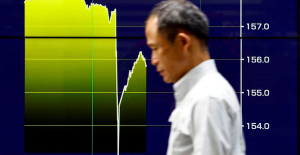 The yen jumps 3% then falls again, amid speculation of Japanese intervention
The yen jumps 3% then falls again, amid speculation of Japanese intervention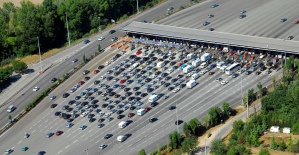 A very busy Friday on the roads of Île-de-France before the Ascension Bridge
A very busy Friday on the roads of Île-de-France before the Ascension Bridge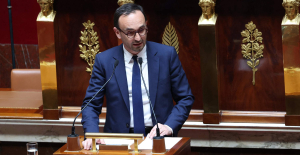 Fraud: the government is preparing new measures for the fall
Fraud: the government is preparing new measures for the fall Nike breaks the bank to keep the Blues jersey
Nike breaks the bank to keep the Blues jersey Madonna ends her world tour with a giant - and free - concert in Copacabana
Madonna ends her world tour with a giant - and free - concert in Copacabana Harry Potter: Daniel Radcliffe “really saddened” by his final breakup with J.K. Rowling
Harry Potter: Daniel Radcliffe “really saddened” by his final breakup with J.K. Rowling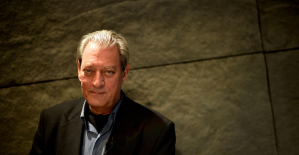 Leviathan, New York Trilogy... Five books by Paul Auster that you must have read
Leviathan, New York Trilogy... Five books by Paul Auster that you must have read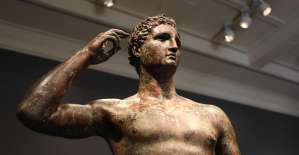 Italy wins a decisive round against an American museum for the restitution of an ancient bronze
Italy wins a decisive round against an American museum for the restitution of an ancient bronze Omoda 7, another Chinese car that could be manufactured in Spain
Omoda 7, another Chinese car that could be manufactured in Spain BYD chooses CA Auto Bank as financial partner in Spain
BYD chooses CA Auto Bank as financial partner in Spain Tesla and Baidu sign key agreement to boost development of autonomous driving
Tesla and Baidu sign key agreement to boost development of autonomous driving Skoda Kodiaq 2024: a 'beast' plug-in hybrid SUV
Skoda Kodiaq 2024: a 'beast' plug-in hybrid SUV The home mortgage firm rises 3.8% in February and the average interest moderates to 3.33%
The home mortgage firm rises 3.8% in February and the average interest moderates to 3.33% This is how housing prices have changed in Spain in the last decade
This is how housing prices have changed in Spain in the last decade The home mortgage firm drops 10% in January and interest soars to 3.46%
The home mortgage firm drops 10% in January and interest soars to 3.46% The jewel of the Rocío de Nagüeles urbanization: a dream villa in Marbella
The jewel of the Rocío de Nagüeles urbanization: a dream villa in Marbella Europeans: a senior official on the National Rally list
Europeans: a senior official on the National Rally list Blockade of Sciences Po: the right denounces a “drift”, the government charges the rebels
Blockade of Sciences Po: the right denounces a “drift”, the government charges the rebels Even on a mission for NATO, the Charles-de-Gaulle remains under French control, Lecornu responds to Mélenchon
Even on a mission for NATO, the Charles-de-Gaulle remains under French control, Lecornu responds to Mélenchon “Deadly Europe”, “economic decline”, immigration… What to remember from Emmanuel Macron’s speech at the Sorbonne
“Deadly Europe”, “economic decline”, immigration… What to remember from Emmanuel Macron’s speech at the Sorbonne These French cities that will boycott the World Cup in Qatar
These French cities that will boycott the World Cup in Qatar Mercato: Verratti at Barça? A track studied
Mercato: Verratti at Barça? A track studied Rugby: after the defeat during the Six Nations, the Blues will meet the English in September for a test match
Rugby: after the defeat during the Six Nations, the Blues will meet the English in September for a test match Premier League: Liverpool unveils its new jersey for next season
Premier League: Liverpool unveils its new jersey for next season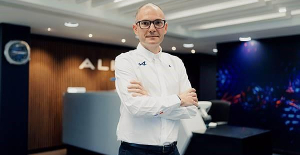 Formula 1: Alpine holds its new executive technical director
Formula 1: Alpine holds its new executive technical director




